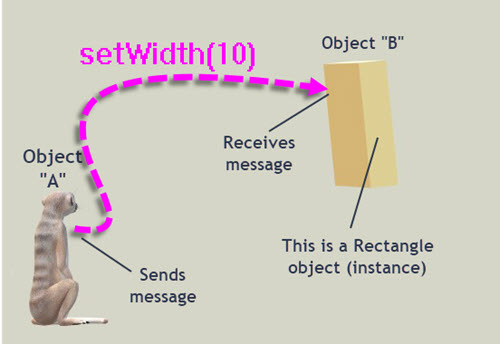Recall the concept of sending arguments with a message ...
Here we are sending the message setWidth to a Rectangle object (instance) and passing the argument value of 10.
Here we are sending the message setWidth to a Rectangle object (instance) and passing the argument value of 10.
